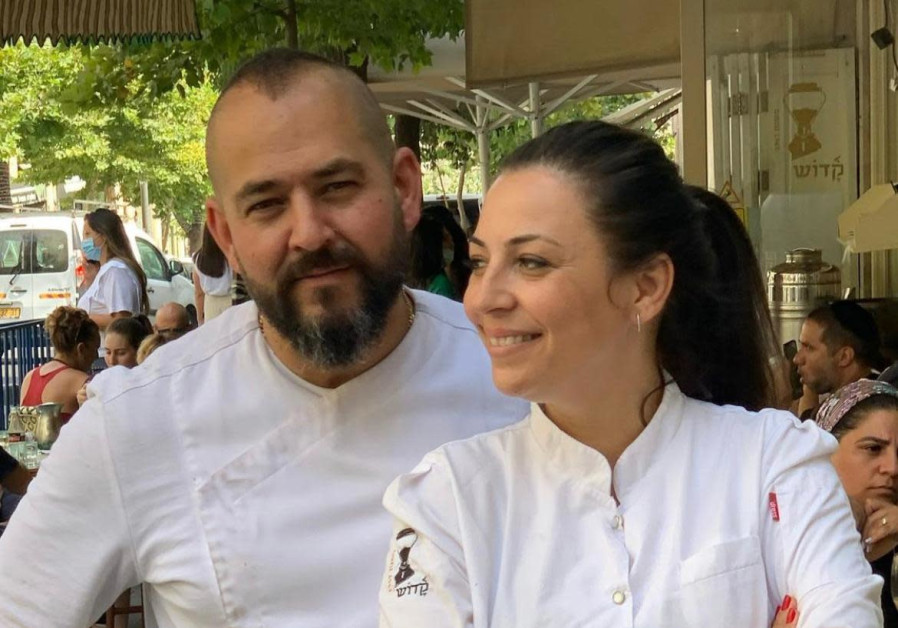Jerusalem culinary landmark Cafe Kadosh has changed its kashrut supervision from the Jerusalem Rabbinate to Tzohar, the religious-Zionist rabbinical association that has an independent kashrut supervision division.
Cafe Kadosh’s decision to join Tzohar, far smaller in scope than local rabbinates and the Chief Rabbinate, will bring greater exposure to its kashrut brand.
In February, during the run-up to Purim, the rabbinate’s inspector demanded that a blue label be placed on every hamentashen, a classic Purim confection, so that customers would know they were dairy, Cafe Kadosh owner Keren Kadosh told The Jerusalem Post Monday.

The inspector was “bullying in manner,” shouted at the staff, reduced one to tears and removed the cafe’s kashrut certificate, she said, adding that he had disparaged her restaurant in front of her clientele.
The inspector had also recently demanded that all their croissants of different types and fillings be triangular so that customers would know they were dairy, Kadosh said.
According to the rules of kashrut, several hours are required between the consumption of meat and dairy, and a person who has eaten meat should know that dairy products are on sale.
Kadosh said her cafe is only dairy, and the customer only has to ask. Patrons of any restaurant have a personal responsibility to know what they are eating, she said.
Following the February incident, the Jerusalem Rabbinate sent a letter, demanding her labeling compliance to regain their kashrut supervision, Kadosh said.
Officials in the Jerusalem Rabbinate also posted a copy of the letter on various Facebook groups, including a kosher foodies group and on a post on Kadosh’s own account, she said.
“This is also not logical,” she added. “They are a state body. Would the Tax Authority conduct a fight with me on Facebook? Fighting us on Facebook is disrespectful; it has to stop.”
Kadosh said she began looking for alternatives to the Jerusalem Rabbinate and spoke to several other restaurant owners who all recommended Tzohar’s kashrut supervision services.
“They check everything, they work [in the kitchen]; we very much enjoy their work,” Kadosh said.
“We observe kashrut, we observed it in the past; we will continue to observe Kashrut and be diligent because that is important to our customers,” she said. “But it’s important there is supervision over us.”
Nothing has changed at Cafe Kadosh other than the change in supervision provider, Kadosh said. The restaurant had received a great deal of support on social media for its decision to have Tzohar’s kashrut, she said.
Kadosh said she had received online abuse since the decision to leave the rabbinate, adding that her WhatsApp account had been hacked, though she was not certain it was related to the kashrut issue.
“There needs to be a respectful dialogue,” she said. “We are people, and we are Jews. One Jew isn’t better than another. We need to love each other and to speak in a respectful manner... Those who want to come and eat with us are invited with love, and those who cannot, I accept that too. But let us speak to each other pleasantly.”
Last year, Cafe Kalo in Jerusalem’s Baka neighborhood had its kashrut license removed by an inspector who objected to the use of an induction stove by a non-Jewish cook.
Its owner objected to what he described as the aggressive and disrespectful attitude of the Jerusalem Rabbinate kashrut inspector and subsequently transferred to Tzohar’s kashrut services.
"In response to Kadosh’s decision, Chairman of Jerusalem Religious Council Yehoshua Yishai said the kashrut standards of the Jerusalem rabbinate require that products should be recognizably dairy, whether through use of a label or by its shape.”
Kadosh’s claim that all products in the restaurant are dairy was insufficient since some products are generally thought to be parve (without dairy or meat ingredients), and someone eating such a product from Kadosh might erroneously think they were eating a parve product, he said.
“We are seeking to prevent this misleading [situation] both from a Halacha perspective and a health perspective,” Yishai said.
He cited a tragic incident last week in which a young Israeli woman died after apparently consuming a dairy product to which she was allergic.
The restaurant in question was a meat restaurant in which no dairy products should have been present, and customers were entitled to expect not to consume dairy products.
Regarding Kadosh’s accusation of aggressive behavior, Yishai said the inspector had denied the claims and that such behavior was not commensurate with his character.
